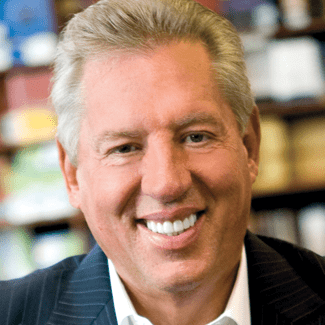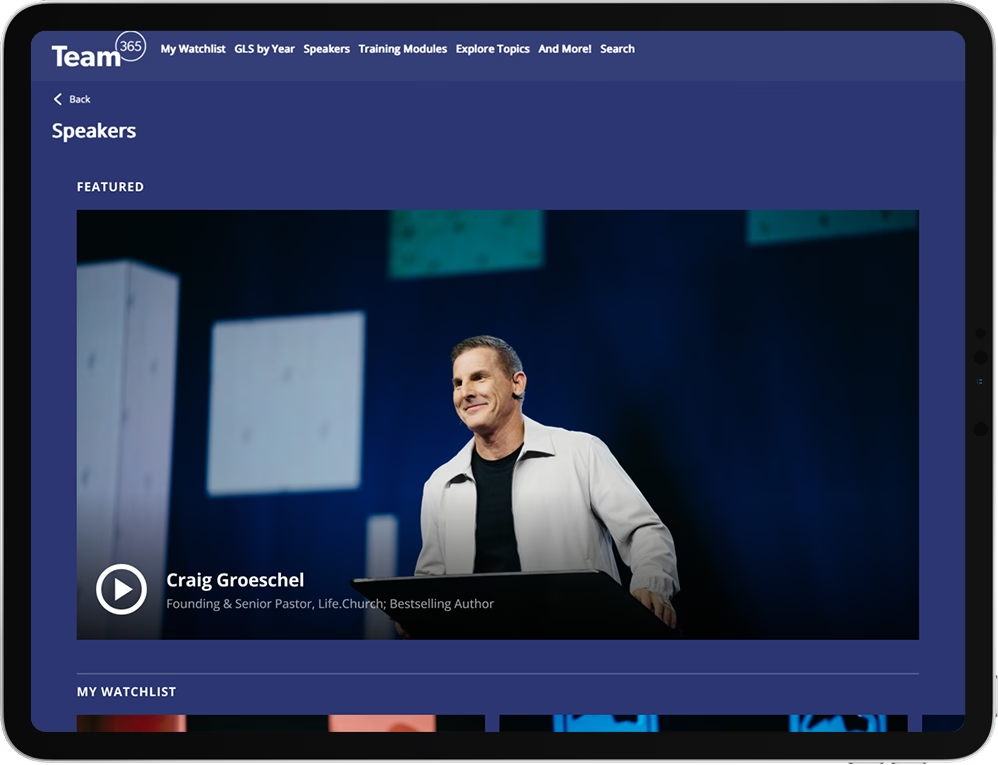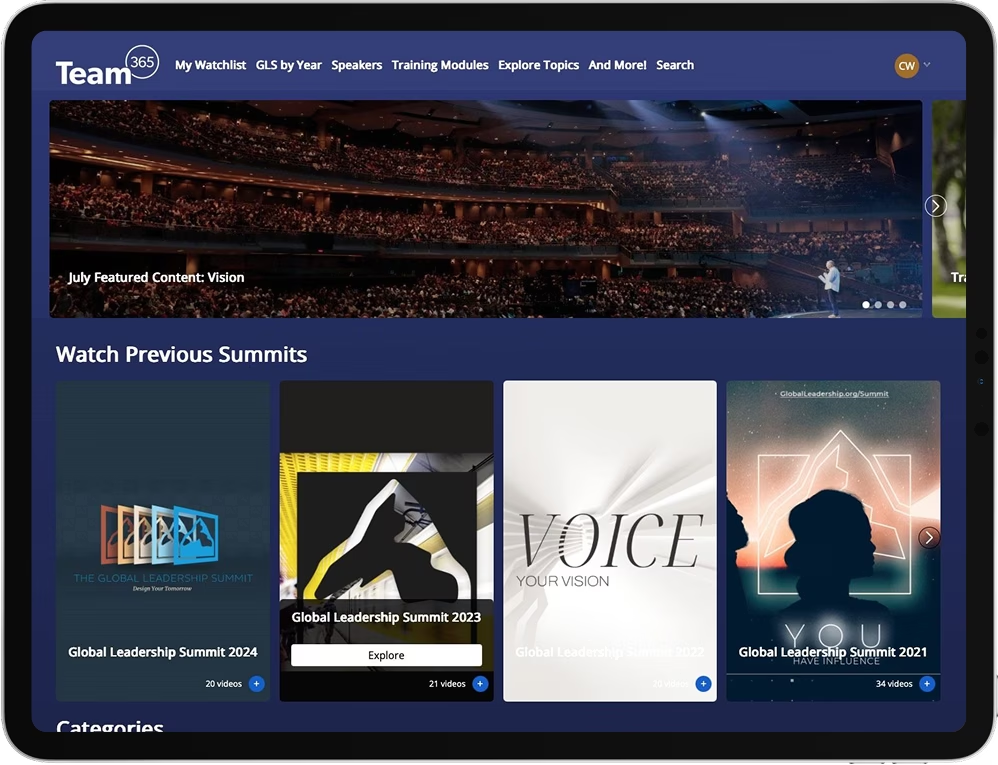At its core, leadership is influence. It is not simply possessing a position or title. John C. Maxwell developed The Five Levels of Leadership to help people understand the journey a leader takes over time. As leaders progress through the levels, they grow their leadership capabilities. In this episode, Jeff Lockyer and John dig into each of the five levels, helping listeners understand the progression of leadership growth and the practical steps necessary to increase their leadership impact.
Get free, instant access to GLS Podcast Episode Show Notes. Leverage episode summaries, key takeaways, reflection questions, resources mentioned, related links and applicable downloads, including Show Notes PDF and Episode Audio File (MP3).
DOWNLOADS:
SUMMARY:
At its core, leadership is influence. It is not simply possessing a position or title. John C. Maxwell developed The Five Levels of Leadership to help people understand the journey a leader takes over time. As leaders progress through the levels, they grow their leadership capabilities. In this episode, Jeff Lockyer and John dig into each of the five levels, helping listeners understand the progression of leadership growth and the practical steps necessary to increase their leadership impact.
KEY TAKEAWAYS:
- Back in the 1990s, leadership was defined as position.
- John C. Maxwell conceived The Five Levels of Leadership to help people understand that leadership is sequential and it can be developed.
- Leadership is influence and anyone can become a leader.There’s no finish line in leadership.
- As we climb the levels, we don’t leave one and go to another. All levels build upon each other.
- Level 1: Position
- It’s a great place to start but not a great place to stay.
- Level 1 can be a phenomenal growth period in the life of a leader.
- 80% of people in the world never get off of Level 1.
- The downside of Level 1: People follow because they have to and give minimal energy.
- Level 2: Permission
- Level 2 leadership is based in relationship: “I like you, and you like me.”
- The key is a leader’s ability to relate and connect with people.
- Leaders don’t climb the mountain alone and then holler at the people; they walk with the people.
- Level 2 Leaders
- Listen
- Observe
- Serve
- Level 3: Production
- Level 3 leadership is based on productivity. This level gives your leadership credibility.
- People want to follow successful people.
- It’s possible to be a producer and not a leader. But it’s not possible to be a leader and not be a producer.
- Level 3 leaders:
- Lead by example
- Create momentum
- Attract better people
- Level 4: People Development
- On a practical level, Level 4 is the end goal—more than Level 5.
- The key is reproduction. Level 4 leaders are equipping others to be better in life.
- At Level 4, leaders make major investments in the people on their team. They always have someone with them who they are developing and training.
- Level 4 leaders:
- Recruit better people
- Position people well
- Equip others to their full potential
- Level 5: Pinnacle
- Level 1 is given by the organization; Levels 2-4 are earned; Level 5 is given to you by others.
- People follow Level 5 leaders because of their moral authority. Their influence goes beyond their organization.
- Level 5 leaders:
- Function at Level 4.
- Do not seek this level, but are recognized after a long leadership tenure.
- The levels are progressive—but the best leaders operate on all levels at the same time.
- Young leaders ask, “How long will it take?” Growing leaders ask, “How far can I go?” There’s a world of difference between those two questions.
REFLECTION QUESTIONS:
- John C. Maxwell developed The Five Levels of Leadership to help people understand the sequence of leadership development. Think about your current leadership life. On which level do you currently operate?1. Position
- 2. Permission
- 3. Production
- 4. People Development
- 5. Pinnacle
- What is one thing you could do this week to move toward the next level of leadership?
RESOURCES MENTIONED:
Developing the Leader Within You 2.0 by John C. Maxwell
The 21 Irrefutable Laws of Leadership by John C. Maxwell
Jim Collins’ “People on the Bus” concept
RELATED LINKS:
Related
Ep 196: A Lifetime of Leadership (with John C. Maxwell)
Have you ever wished you could sit down with someone who has truly mastered their craft? Michael Jordan on winning; Mozart on music; Leonardo da Vinci on creativity. Not just to review their highlight reels but to unpack all the lessons they learned across their lives? Well, that’s what today’s conversation feels like because today we get to listen to John C Maxwell talk about leadership.
Ep 192: Creating Spaces Where Productivity, Creativity and Well-being Soar (with Bradley Rapier)
Bradley is an award-winning, Emmy-nominated choreographer with over three decades of experience in dance, production and leading teams and talent from Hollywood to Broadway. Whether dance and choreography is your thing or not, what Bradley teaches in this conversation with GLN President and CEO David Ashcraft is what happens when people feel engaged and connected, and how we as leaders can facilitate that engagement.
EP 161: Molly Fletcher on Choosing Fulfilment Over Achievement
In this episode, former top sports agent Molly Fletcher shares how long-term joy and happiness come not from achievement but from daily improvement and fulfillment.
Leadership That Lasts
Team365 isn’t just a platform. It’s a commitment to grow, lead and live with purpose — every single day. Whether you’re here for content, community or clarity, you’re in the right place. Your leadership matters. Let’s keep going.




